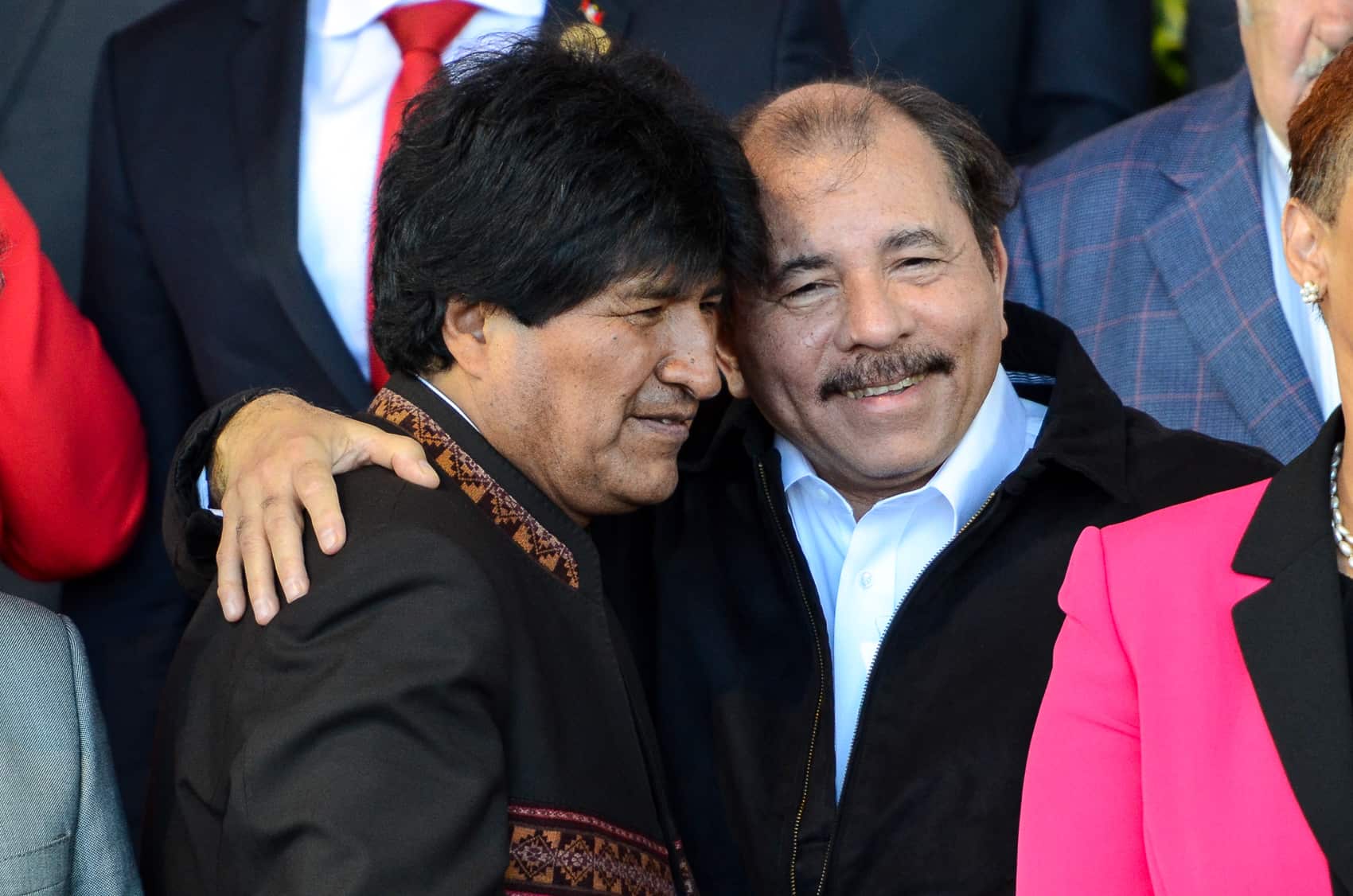U.S. President Barack Obama should take part in the next Summit of the Americas in Panama, he should work to lift the six-decade embargo against Cuba, and while at it, return the U.S. Naval base in Guantánamo to the Caribbean island nation, Bolivian President Evo Morales said Thursday.
Obama would thus make credible his announced will to restore diplomatic relations between the two countries, Morales told a press conference on the sidelines of the Third Summit of the Community of Latin American and Caribbean States (CELAC), which ended today in Costa Rica.
Morales said the diplomatic breakthrough between the two former Cold War foes should not be viewed as a concession from the U.S., but rather a development that stems from the United States’ need to not be left out of international investment taking place on the island.
“Let’s hope Obama goes to the next summit of the Americas in Panama and lifts the economic blockade,” he said. “Then we’ll believe if diplomatic relations will benefit both countries.”
However, lifting the U.S. embargo against Cuba requires action from the U.S. Congress, not the White House. Morales seemed to either ignore or brush off that crucial point in the U.S. political process. “When there’s political will, it is done,” he said.
“Other countries are in solidarity [with Cuba], and there’s investment. The United States is being left out of that investment, [and] it hurts them,” he said. “Restoring relations becomes a must.”
The South American leader noted that some political commentators have called the U.S.-Cuba announcement “a concession by Obama.”
“I don’t see it that way,” he said, instead attributing it to “the Cuban people’s conscientious struggle.”
And in a nod to Latin America’s swing to the left in recent years, Morales said: “Before it was just Cuba, Fidel and his people. Now we’re so many countries sharing the principle [of revolution].”
On the Organization of American States, Morales said Fidel Castro and Cuba were expelled because they “were communist reds.” “I, too, am a communist red,” he said. “Let’s see them expel me.”
Morales said Cuba would have become a “model state” if not for the U.S. embargo, and several U.N. resolutions backed by 180 member countries were against it.
In his address on Wednesday, Raúl Castro noted that the embargo is a key issue that has yet to be resolved before diplomacy moves forward.
The White House responded Thursday by saying it would not hand over control of Guantanamo Bay to Havana.
“The president does believe that the prison at Guantanamo Bay should be closed down,” said White House spokesman Josh Earnest. “But the Naval base is not something that we wish to be closed.”
The base, on Cuba’s southeastern tip, is currently the site of a large Naval base as well as a deeply controversial prison used to detain terror suspects without trial.
The U.S. took control of Guantanamo following a treaty in 1903.
Obama has repeatedly stated that holding prisoners at Guantanamo is a recruiting tool for terror groups, but has failed to close down the facility.







